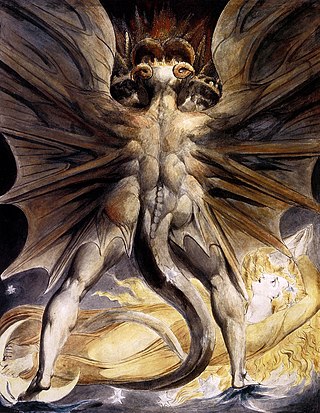See also
- John Brown's body, about his burial
- Battle Hymn of the Republic
" John Brown's Body " is an American marching song popular in the Union during the American Civil War.
John Brown's Body may also refer to:
A fugitive is a person fleeing from arrest.
Morning Star, morning star, or Morningstar may refer to:
A testament is a document that the author has sworn to be true. In law it usually means last will and testament.
Traveler(s), traveller(s), The Traveler, or The Traveller may refer to:
Dark Angel may refer to:
Wanderer, Wanderers, or The Wanderer may refer to:

"Childe Roland to the Dark Tower Came" is a narrative poem by English author Robert Browning, written on January 2, 1852, and first published in 1855 in the collection titled Men and Women. The poem is often noted for its dark and atmospheric imagery, inversion of classical tropes, and use of unreliable narration. Childe Roland, the only speaker in the poem, describes his journey towards "the Dark Tower", and his horror at what he sees on his quest. The poem ends when Roland finally reaches the tower, leaving his ultimate fate ambiguous.
Messiah is a title given to a saviour or liberator of a group of people in Abrahamic religions.
The Sea may refer to:
Darkness is the absence of light.
Fever is an increase in internal body temperature to levels above normal.
Hunger is a prolonged condition in which insufficient amounts of food are available.
Howl most often refers to:
Dreamers or The Dreamers may refer to:
Night is the period in which the sun is below the horizon.

William Blake's body of work has influenced countless writers, poets and painters, and his legacy is often apparent in modern popular culture. His artistic endeavours, which included songwriting in addition to writing, etching and painting, often espoused a sexual and imaginative freedom that has made him a uniquely influential figure, especially since the 1960s. After Shakespeare, far more than any other canonical writer, his songs have been set and adapted by popular musicians including U2, Jah Wobble, Tangerine Dream, Bruce Dickinson and Ulver. Folk musicians, such as M. Ward, have adapted or incorporated portions of his work in their music, and figures such as Bob Dylan, Alasdair Gray and Allen Ginsberg have been influenced by him. The genre of the graphic novel traces its origins to Blake's etched songs and Prophetic Books, as does the genre of fantasy art.
A blessing is a type of religious pronouncement.
The Wind can refer to:
Greed is an excessive desire to possess wealth or goods with the intention to keep it for one's self.
A fisherman is someone who captures fish and other animals from a body of water, or gathers shellfish